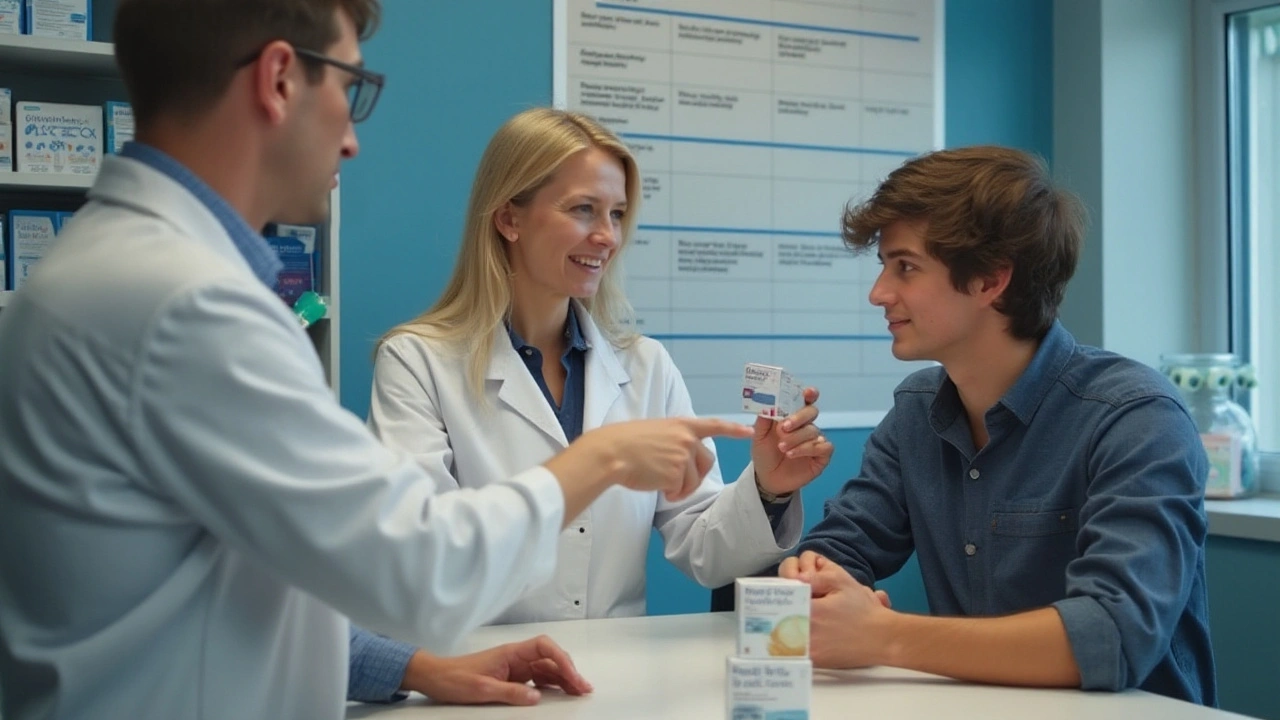Premature ejaculation (PE) is when a man reaches orgasm and ejaculates sooner than he or his partner want during sex
It’s common and treatable. If it’s happening often and it bothers you, there are simple steps you can try right away and clearer options if you want medical help.
First, quick practical tips you can try tonight. Focus on breathing and slow down — shallow, steady breaths calm nerves and delay climax. Use the start-stop method: pause stimulation before you feel close, wait 20–30 seconds, then resume. The squeeze technique is another option: press the head of the penis for a few seconds at the point of near-ejaculation to reduce arousal. Try condoms or a thicker condom to lower sensation. Over-the-counter numbing creams or sprays can work but follow instructions and test with a partner first to avoid transferring numbness.
Lifestyle and mindset matter. Performance anxiety speeds things up. Talk openly with your partner about pace and expectations. Reduce alcohol and recreational drug use before sex — they can interfere with control. Improving general fitness, sleep, and stress helps sexual confidence. Pelvic floor exercises (kegels) strengthen muscles involved in ejaculation control; learn the correct technique and practice regularly.
When to see a doctor? If PE is persistent, causes distress, or started after an injury or medical problem, get evaluated. A doctor will ask about your history, medications, and relationship factors. Some medical conditions — like prostate issues, thyroid problems, or certain medications — can cause early ejaculation. They can run simple tests or recommend treatments.
Treatment options from clinicians. Behavioral therapy and sex counseling help most men, often with partner involvement. Medicines include topical anesthetics that reduce sensation and certain antidepressants (SSRIs) that delay ejaculation. Dapoxetine is a short-acting SSRI approved for PE in some countries; other SSRIs can be used off-label. Always discuss side effects and drug interactions with a prescriber.
When a partner is involved, teamwork helps. Share what works, give feedback, and focus on pleasure rather than performance. Try other sexual activities that reduce pressure, like extended foreplay or positions that lower stimulation.
What to avoid: don’t rely on porn-based timing or solo rituals that don’t translate to partnered sex. Avoid unprescribed pills advertised online; they can be unsafe or contain unknown ingredients. If you see herbal supplements claiming guaranteed fixes, be skeptical and ask a clinician.
If you want to read deeper, look for articles on sexual health, anxiety, pelvic floor training, and safe online pharmacies for prescribed meds. For fast relief, topical anesthetics and condoms can help in weeks; for lasting change, combine behavioral work, lifestyle changes, and medical advice.
Practical next steps: keep a journal about how often PE happens, what triggers it, and what methods you tried. Set goals—try one technique for two weeks then move on. If medication is suggested, ask about how long to try it and how to stop safely. If your partner is nervous, consider joint therapy sessions to reset expectations. You're not alone — many men improve with steps.

Top 7 Priligy Alternatives for Premature Ejaculation in 2024
Exploring effective alternatives to Priligy in 2024, this article delves into medications like Paroxetine, Clomipramine, and topical solutions like EMLA Cream. It aims to provide readers with a comprehensive understanding of different treatments, their benefits, and potential drawbacks. A comparison table is also included to help in making informed decisions regarding premature ejaculation treatment options.
- Drug Information (69)
- Health and Wellness (59)
- Medical Conditions (22)
- Pharmacy Information (22)
- Supplements (4)
- Diabetes (4)
- Travel Health (3)
- Mental Health (3)
- Heart Health (2)
- Parenting (2)
-
New Antidepressants with Better Side Effect Profiles: What’s Emerging in 2026
18 Jan 2026 -
Antidepressants and Birth Control: What You Need to Know About Medication Interactions
24 Nov 2025 -
How to Appeal Insurance Denials for Brand-Name Medications
13 Feb 2026 -
Buy Online Cheap Generic Seroquel - Safe Guide & Price Comparison
6 Oct 2025 -
Buy Generic Tamoxifen Online in Australia: Safe, Legal, and Low-Cost Options (2025)
9 Sep 2025

19.10.24
Alistair Mukondiwa
18